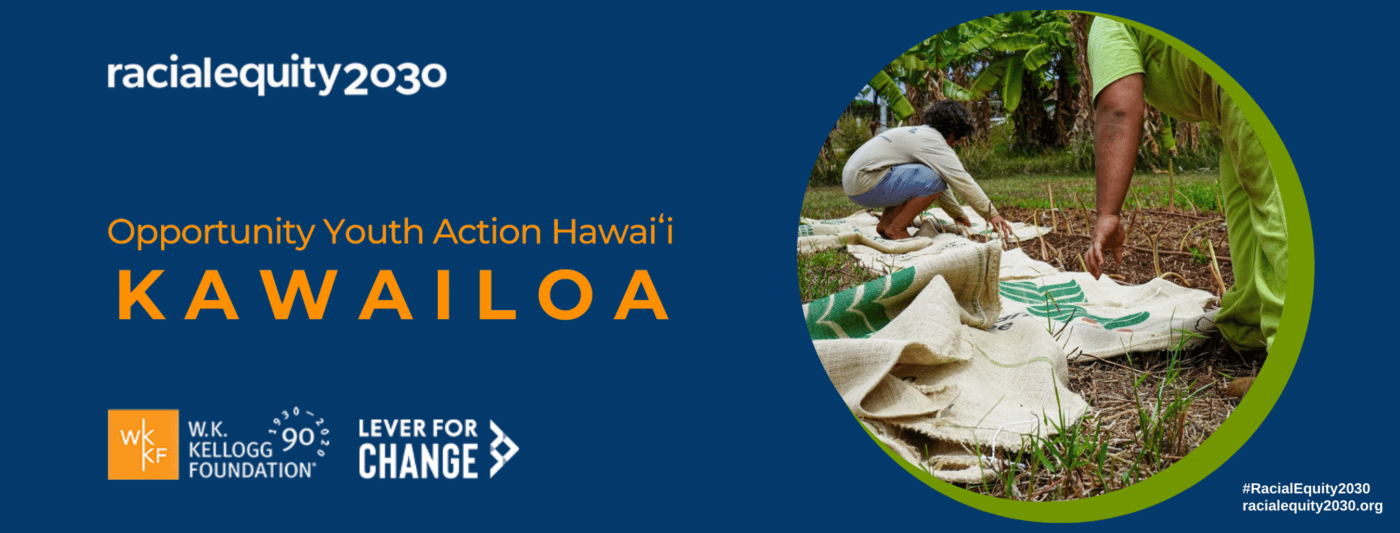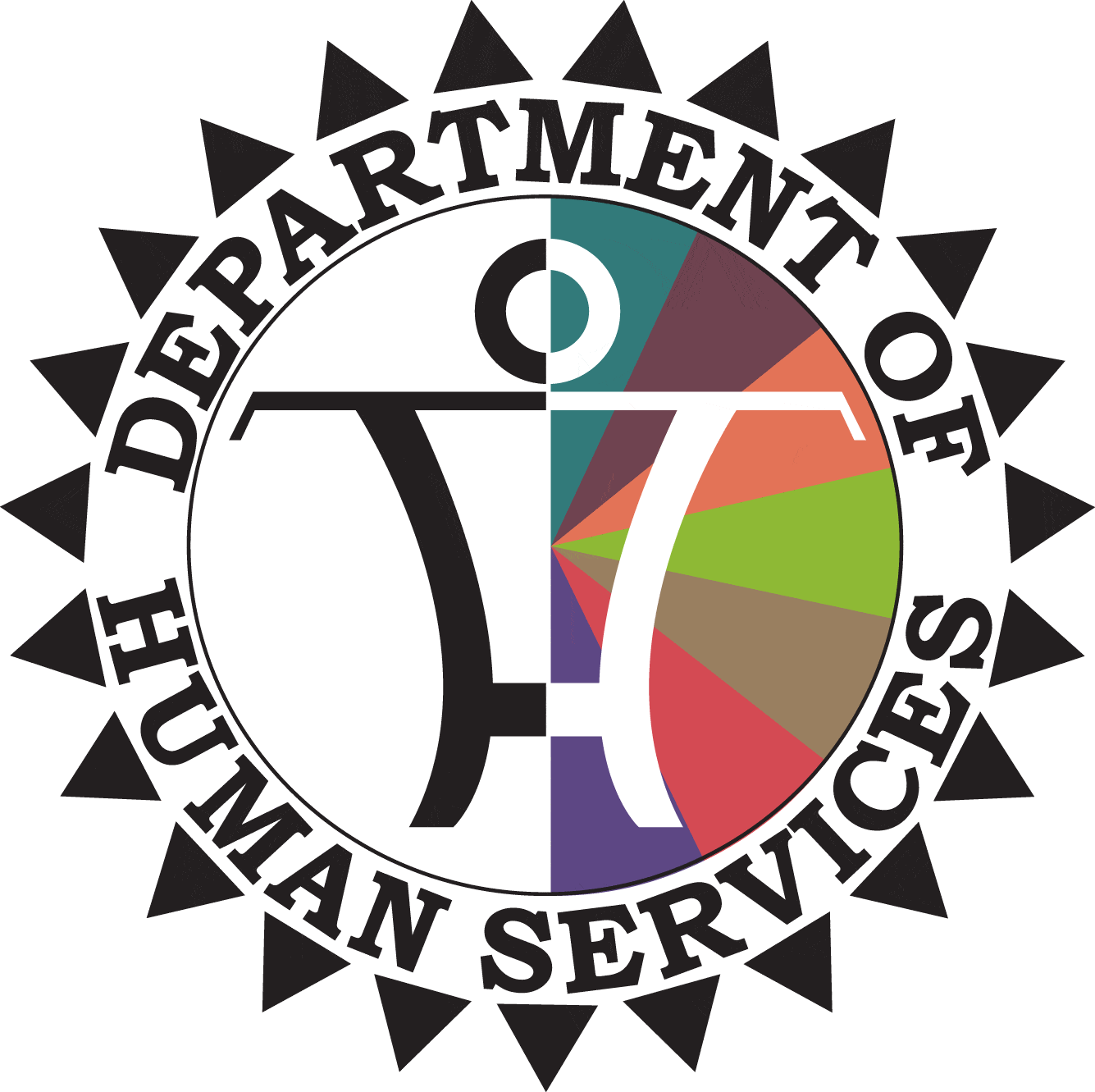The Racial Equity 2030 challenge will support the Hawaiʻi project to replace youth incarceration using a transformative indigenous model.
Today, the W.K. Kellogg Foundation announced Partners in Development Foundation (PIDF) and its collaborative partners known as the Opportunity Youth Action Hawaiʻi (OYAH) as one of the Racial Equity 2030 Challenge’s five awardees. The Challenge is awarding $80 million to help build and scale actionable ideas for transformative change in the systems and institutions that uphold racial inequities. Our project, “Kawailoa: A Transformative Indigenous Model to End Youth Incarceration”, was awarded $20 million dollars over an eight-year commitment.
The Kawailoa project is committed to replacing youth incarceration with a Native Hawaiian restorative system that empowers communities, trains youth healers, and shifts resources to community-driven and culturally-grounded sanctuaries of support.
In Hawaiʻi, young Native Hawaiians and other Pacific Islanders are disproportionately represented in the juvenile justice system. Before, during, and after, they continue to encounter setbacks that are indicative of systemic failures and generational challenges, and number far too many experiencing foster care, substance abuse, human trafficking, child welfare, and poor educational outcomes. The OYAH group represents community-based and state entities working to create positive pathways for Hawaiʻi’s most vulnerable population, including PIDF and its Kupa ʻAina Farm, Kinai ʻEha, Hale Kipa’s Hale Lanipōlua Assessment Center, Residential Youth Services & Empowerment, Hawaiʻi Youth and Correctional Facility, and Olomana alternative-education school located at the Kawailoa Youth and Family Wellness Center on Oʻahu.
Launched in 2020, the Racial Equity 2030 Challenge was designed to help build and scale actionable ideas for transformative change in the systems and institutions that uphold racial inequities. The Challenge aims to unleash transformative solutions to improve the lives of children, families and communities across the world.
“This incredible opportunity from the Kellogg Foundation allows us to expand our innovative approaches that directly address racial inequities by replacing a punitive system with a sustainable, therapeutic model rooted in our cultural values and ancestral wisdom,” said Shawn Kanaʻiaupuni, President and CEO of PIDF. “We are a group of committed leaders and organizations who see ourselves as part of the solution to forward the foundational work accomplished in the last ten years to create a more equitable youth justice system.”

The challenge was announced in 2020, 90 years after the founding of the W.K. Kellogg Foundation and received 1,453 submissions from 72 countries around the world. In September 2021, the Kellogg Foundation announced the top 10 finalists for the challenge who each received a $1 million grant and nine months of capacity building support. All finalists moved through a process of multiple levels of review, feedback and diligence involving peer applicants and multi-disciplined experts from across the world.
“Partners in Development Foundation and the Opportunity Youth Action Hawaiʻi collaborative, already have a strong track record, and are continuing the work that has reduced the youth incarceration rate in Hawaiʻi by 82 percent over the last decade,” said Ciciley “CC” Moore, senior program officer at the W.K. Kellogg Foundation. “They’re replacing youth incarceration with culturally rooted programs aimed at healing, which is drastically cutting recidivism, especially among Native Hawaiian and BIPOC youth. We are proud to be partners for the next eight years.”
The Racial Equity 2030 Challenge was managed in partnership with Lever for Change, a nonprofit affiliate of the John D. and Catherine T. MacArthur Foundation that connects donors with bold solutions to the world’s biggest problems—including issues like racial inequity, gender inequality, lack of access to economic opportunity and climate change.
The Department of Human Services and Office of Youth Services is proud to be a partner on this journey to transform youth incarceration with a Native Hawaiian restorative system that empowers youth and communities.
This incredible opportunity builds upon decades of juvenile justice reform in Hawai’i and propels us towards truly meaningful racial equity change and healing. As stewards of the youth and land at the Kawailoa Youth and Family Wellness Center and Hawaii Youth Correctional Facility, we look forward to the continued partnership and collaboration ahead to accomplish this joint vision. We would like to thank the Partners in Development Foundation and the Opportunity Youth Action Network for their partnership, collaboration, and passion in making this happen.
We’d especially like to thank the W.K. Kellogg Foundation for their vision of all children having an equitable and promising future and for their investment in us and the youth of Hawai’i.
Leanne Gillespie, Office of Youth Services

Learn more about the Hawaiʻi project to end youth incarceration at www.wearekawailoa.org. For more information about the Racial Equity 2030 Challenge, the awardees, and the finalists can be found at wkkf.org/re2030.

